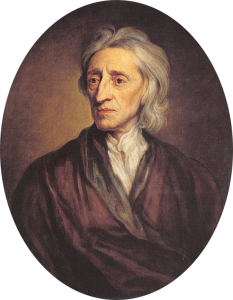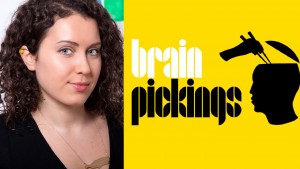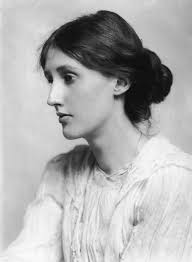My first post of the New Year on this blog often goes in the direction of the sort of resolution that many of us get wrapped up with at the beginning of the year. Not this year. I am weary, as I suspect many of you are, of attempting to reduce the complexity of life and relality to a platitude, meme, or sound bite. Christian Wiman writes that “’Love is all you need’ works fine in a pop song, but in a marriage, or in a boat full of refugees, or in any work that seeks to speak to life as it is genuinely lived, it grates.”
The New Year is a good time to think about the continuing task of constructing a meaningful self and life that each of us faces from birth to death. As my sabbatical ends and I return to the classroom in two weeks, I’m thinking about an exercise that I use frequently with my students. Imagine that your life is a story with you as the main character. How much of that story do you get to write, and how much of that story is written for you by things beyond your control (other people, environment . . . God)? When are you the author and when are you authored? Wiman once again: “To compare the novelist to God is an old habit, but a better comparison is between a failed novelist and God, who seems conflicted about how—or whether—to finish us.”
If each of us is a story that we are both writing and that is being written for us, what stays constant throughout all of the changes? We all know that although we change significantly over time but, despite the changes, believe that we remain the same person throughout our lives. How does that work?
This issue is often described in philosophy as “the problem of personal identity.” How does a person stay the same over time? To get things going, I often ask my students how many have ever said something like “I’m not the same person that I was back then.” Every hand goes up, since everyone knows that even those parts of ourselves that we consider to be most important—our attitudes, beliefs, commitments, and so on—can radically change over time. Add that to the fact that scientists tell us that there is no cell in our body that will still be in our body a few years from now, and it becomes a challenge to identify exactly what it is about me that stays the same over time so I can still call myself the same person as I was throughout all of the changes that each of us encounters.
Many philosophers and theologians have cheated (in my considered opinion) by saying that it is the “soul” that stays constant in the human person throughout all of the physical and experiential changes that each of us encounters throughout a lifetime. Plato insisted that the human being’s tool to engage with the unchanging and eternal Forms was the unchanging and eternal soul, an idea that traditional Christian theology has been more than happy to adapt and apply to our connection with the divine.
But press someone concerning what the soul actually is, and you will undoubtedly instead find out what it is not—it isn’t physical, it isn’t subject to change, is impervious to time, and so on. In short, the soul is the “whatever it is” that stays constant throughout a human being’s changes, but don’t ask for its positive characteristics. It is just a necessary placeholder. Unfortunately, one of the most important rules of logic is that one cannot define something negatively.  Theological issues aside, the soul hardly works as a standard for personal identity.
Theological issues aside, the soul hardly works as a standard for personal identity.
One of the most interesting and influential explorations of personal identity comes from John Locke, the great 17th century British philosopher. Locke suggests that one’s personal identity extends as far back as one’s memories extend—my identity, in other words, is the collection of all of those experiences stretched over time that can appropriately be owned as “mine.” “I” am the subject of all of these experiences. As my students point out in short order, there are plenty of problems with this notion.
- Does this mean that a person with no memories, someone with advanced Alzheimer’s or in a comatose state, is not a person (although human)? Locke’s criterion says “yes.”
- Does this mean that an unborn fetus with no memories and without consciousness is not a person (although human)? Locke’s criterion says “yes.”
- Suppose that at (time A) 5 years old I go to Disneyland, at (time B) 45 years old I am promoted to full professor, and at (time C) 90 years old my sons commit me to a nursing home. At 45 I remember going to Disneyland; at 90 I remember getting promoted but no longer remember going to Disneyland. Locke’s analysis requires me to say that Morgan B and Morgan A are identical, as are Morgan C and Morgan B. Morgans C and A, however, are not the same person. That violates the transitive law of mathematics and logic (A=B, B=C, therefore A=C), but who said personal identity is mathematically precise?
- Human memories are notoriously inaccurate. What impact, if any, does this have on Locke’s proposed standard?
These and other puzzles arising from Locke’s analysis reliably produce great class discussions—but are we any closer to figuring out who we are?
 In a recent conversation with Krista Tippett, Maria Popova provided a 21st century version of Locke’s suggestions.
In a recent conversation with Krista Tippett, Maria Popova provided a 21st century version of Locke’s suggestions.
Identity for all of us is this perpetual process. It’s somewhat like constantly clearing out and rearranging an attic. And it’s as much about throwing out all the furniture and trinkets that no longer serve us as bringing in new ones . . . We are a collage of our interests, our influences, our inspirations, all the fragmentary impressions we’ve collected by being alive and awake to the world. Who we are is simply a finely curated catalog of those.
Popova’s reflections highlight a feature of a Lockean analysis that is easily missed—each of us has both the responsibility and the privilege of creating our own identities.  As Flannery O’Connor once wrote, “the human being is always something under construction.” We do not control much of what happens to us, but we do get to choose which features will rise to the level of “definitive,” which memories will serve as the foundation of who we are. Each of us, as Popova might say, is a curator of our identity. The more items there are to curate, whether experiences, texts, or other people, the more dynamic and nuanced each identity has the potential to be.
As Flannery O’Connor once wrote, “the human being is always something under construction.” We do not control much of what happens to us, but we do get to choose which features will rise to the level of “definitive,” which memories will serve as the foundation of who we are. Each of us, as Popova might say, is a curator of our identity. The more items there are to curate, whether experiences, texts, or other people, the more dynamic and nuanced each identity has the potential to be.
Popova is also willing to nod favorably toward the notion of the soul. It may not be the best choice as an anchor of personal identity, but Popova suggests that whatever the soul is, we have reason to think that it is real.
Virginia Woolf wrote that “One can’t write directly about the soul. Looked at, it vanishes.” And she talks about the slipperiness of the soul and the delicacy and complexity of the soul. But I think the fullest people, the people most whole and most alive, are always those unafraid and unashamed of the soul. And the soul is never an assemblage of fragments. And it always is.
Philosophers are likely to complain that there is still no evidence to support believing in the existence of such a thing. But perhaps the best evidence in its favor is that multitudes of human beings seem bound, even hard-wired, to believe in it. Maybe that’s enough.












